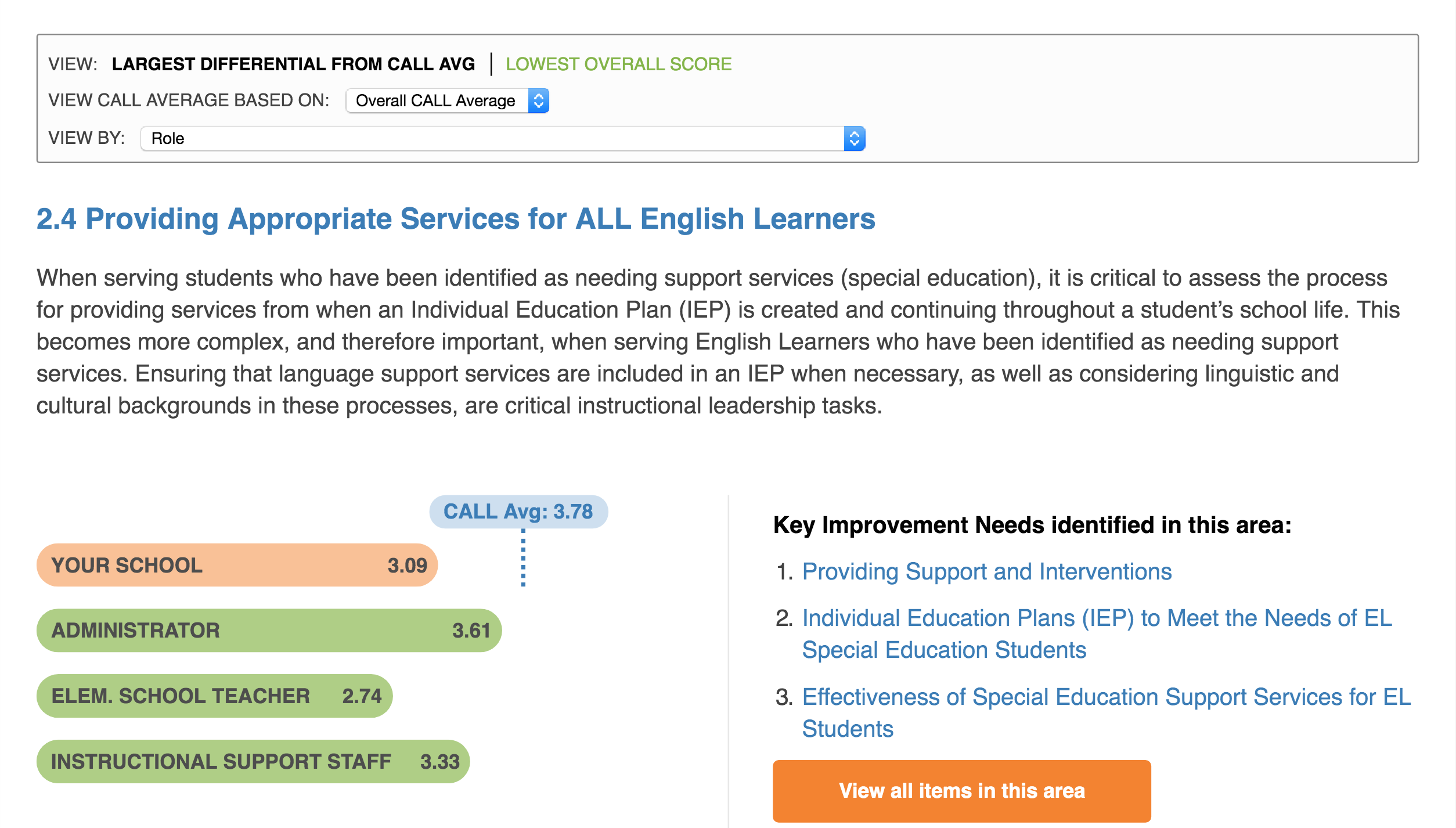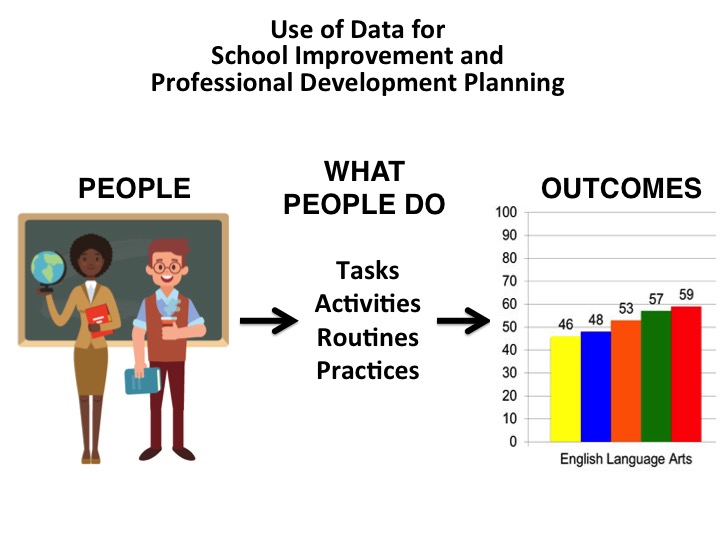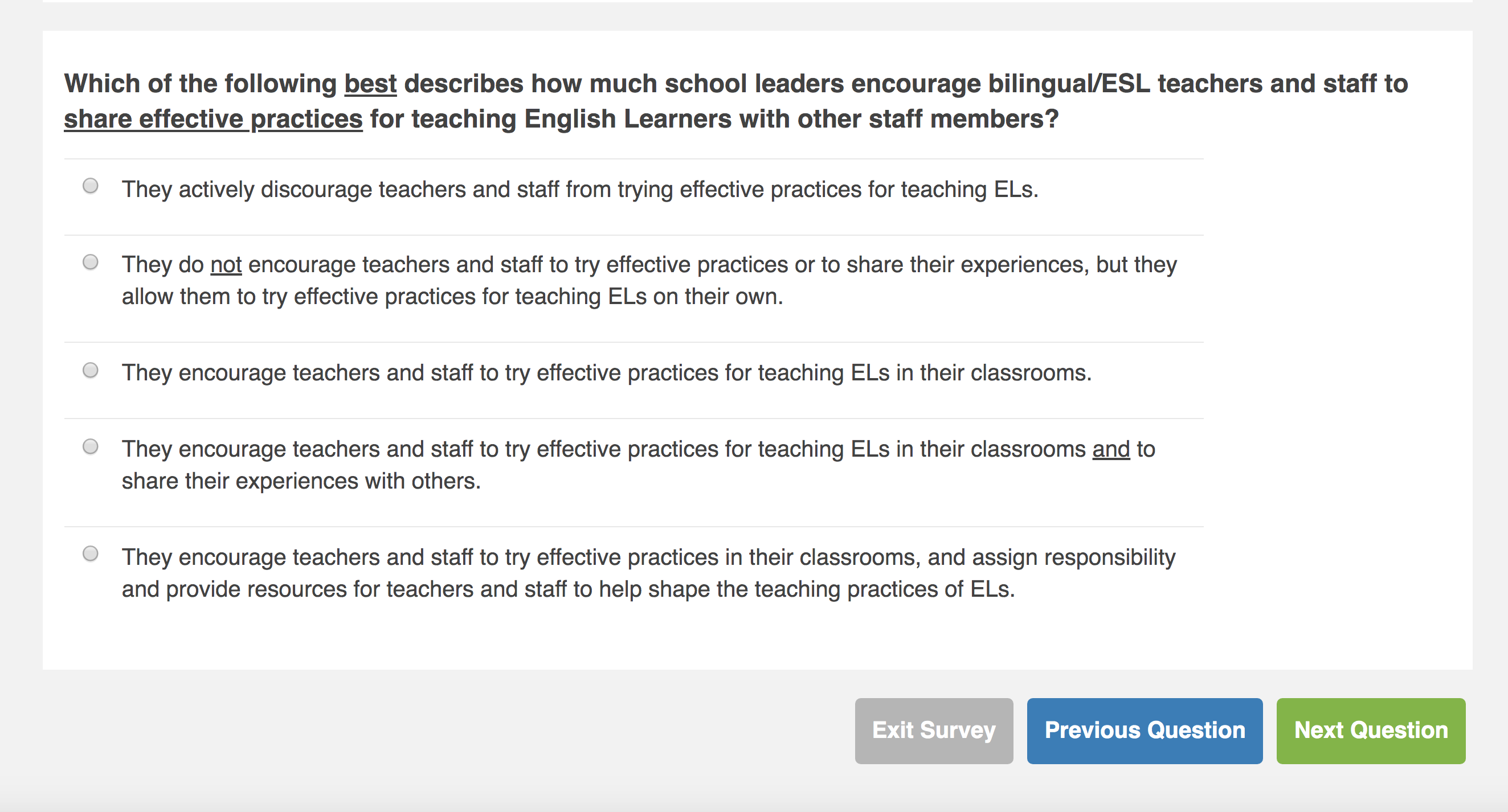This article discusses ESSA, CSI & TSI schools, and the WIDA School Improvement System (WIDA SIS). WIDA SIS is a school-wide leadership assessment and feedback system designed to support and improve the teaching of English Learners.
Across the country, as part of the current federal education law, Every Student Succeeds Act (ESSA), schools have been designated as Comprehensive Support and Improvement (CSI) and Targeted Support and Improvement (TSI). State Education Agencies have been developing plans to support these schools, and many states are empowering LEAs to work with these schools while providing guidance on the implications of these designations. For their part, many LEA leaders are using these designations, not as a way to shame schools or drive out school leaders, but rather use these designations as an opportunity for meaningful school improvement work. Here are some aspects of ESSA and CSI & TSI designations to keep in mind:
- CSI & TSI schools are required to conduct a comprehensive needs assessment (CNA)
- CSI schools are required to create and implement a school improvement plan based on the CNA
- ESSA requires information on the CNA and school improvement plan to be broken down into identified groups of students including English Learners (ELs)
Let’s examine each of these aspects within the context of a new school improvement tool from WIDA: The WIDA School Improvement System (WIDA SIS).
CSI & TSI schools are required to conduct a CNA
It’s encouraging that this federal policy is requiring not just a plan of action, but a needs assessment to determine that action rather than allowing schools to implement new programs and initiatives based on anything that’s not evidence-based. And, it should be noted that these needs assessments need to be comprehensive. This means that an effective CNA uses multiple data sources to determine the needs and successes of a school. It is most beneficial for school leaders to have multiple sets of data to confirm or confront findings from multiple assessments.
WIDA SIS serves as an effective source of data for a CNA. The WIDA SIS Reporting System identifies Areas of Strength and Improvement Needs. Due to the nature of the WIDA SIS survey which focuses on specific leadership practices, school and LEA leaders drill down to the item-level data to identify specific tasks on which to focus for their school improvement work.
 A sample data block from the WIDA SIS reporting system. The reporting system identifies Areas of Strength and Improvement Needs for each school.
A sample data block from the WIDA SIS reporting system. The reporting system identifies Areas of Strength and Improvement Needs for each school.
 The WIDA SIS reporting system allows school and district leaders to drill down to specific item-level data in order to identify key practices on which to focus.
The WIDA SIS reporting system allows school and district leaders to drill down to specific item-level data in order to identify key practices on which to focus.
CSI schools are required to create and implement a school improvement plan based on the CNA
School Improvement Plans (SIPs) are not new to education policy. Schools that have been identified for improvement within past education policies have had to develop SIPs. However, we have seen that schools often create SIPs that are compliance-based, meaning that they create a plan basic in nature due to a mandate alone and not because this plan could be a constructive tool to improve instruction and enhance student learning. With ESSA requiring CNAs to inform SIPs, school and LEA leaders have a greater opportunity to make the SIP process more meaningful. In the past, most SIPs have focused on summative data only, citing current student test scores and then stating the goals for where they plan for student test scores to be. However, this isn’t so much a plan as it is a statement of goals.
 For school improvement planning, we should try, to the best of our ability, to focus on the work.
For school improvement planning, we should try, to the best of our ability, to focus on the work.
To create a meaningful SIP that moves leaders “beyond compliance,” it is useful to focus not only on the goals but also on the work that it will take to meet those goals. Therefore, collecting practice-based data as part of a CNA fills in the gaps between the SIP goals and the people responsible for meeting those goals. WIDA SIS utilizes a Distributed Leadership perspective when assessing school-wide leadership. In doing so, this assessment tool places emphasis on the work that is happening in a school rather than on the people traditionally associated with carrying out leadership practices. Effective leadership is not confined to a single person, and WIDA SIS assesses school-wide leadership for teaching ELs with that in mind.
ESSA requires information on the CNA and school improvement plan to be broken down into identified groups of students including English Learners (ELs)
The EL student population is growing not only in urban settings but in suburban and rural schools as well. Teachers are not as prepared as they would like to be to teach and support these students. And school leaders (many of them former teachers) are not well prepared to support and guide these teachers to build their capacity to teach ELs. And yet, for CSI and TSI schools, they must account for ELs in their plans. Again, this requirement could either be viewed as an act for compliance or as an opportunity to engage in meaningful professional learning and growth. WIDA SIS not only assesses school-wide needs, it does so while focusing specifically on leadership for teaching ELs. As a result, school and LEA leaders have a tool to guide their work to support teachers in this area, even if they themselves are not experts in EL instruction.
 The WIDA SIS survey focuses on the various routines, practices, and processes that support teaching English Learners.
The WIDA SIS survey focuses on the various routines, practices, and processes that support teaching English Learners.
To be sure, the jobs of school and LEA leaders are as challenging as ever. We should not expect that they will have all the answers to the challenges presented in their schools. They need, and often ask for, support. The WIDA School Improvement System (WIDA SIS) is an effective source for support because it:
- Focuses on the work rather than the individual
- Assesses school-wide needs
- Has a distinct focus on supporting instruction of ELs
Contact the WIDA SIS Team for more information.